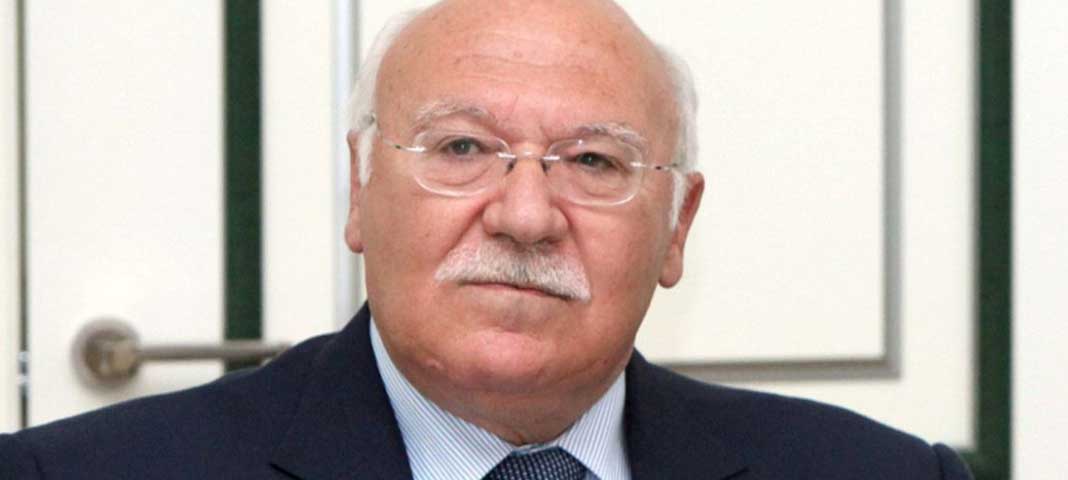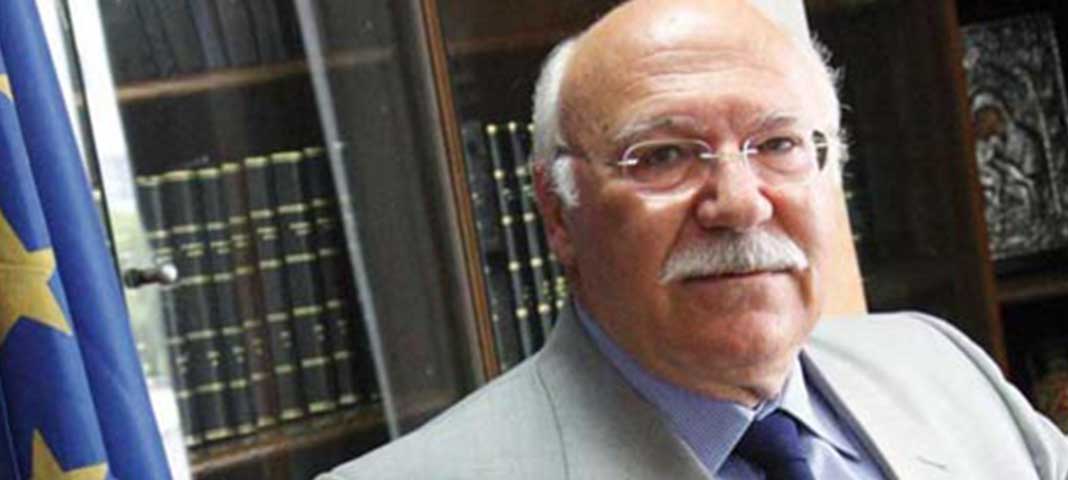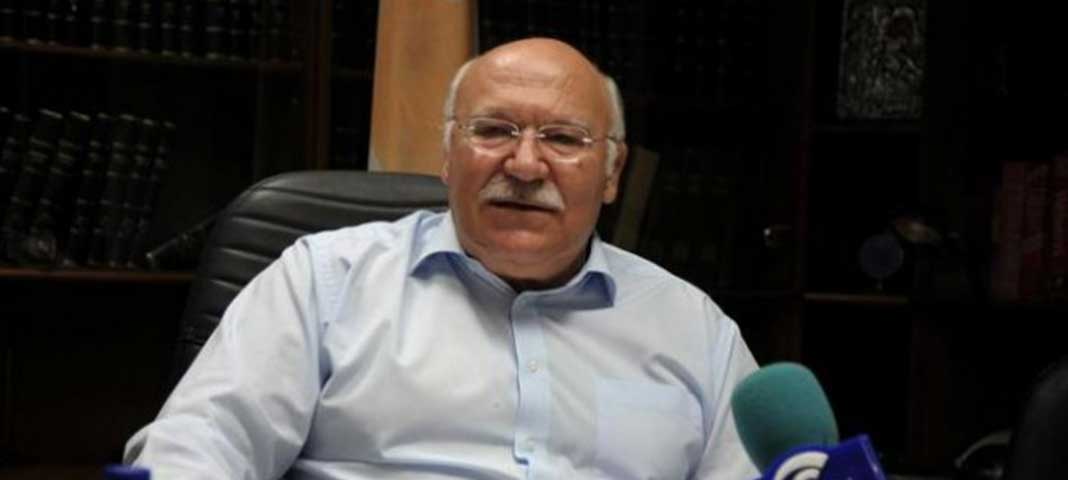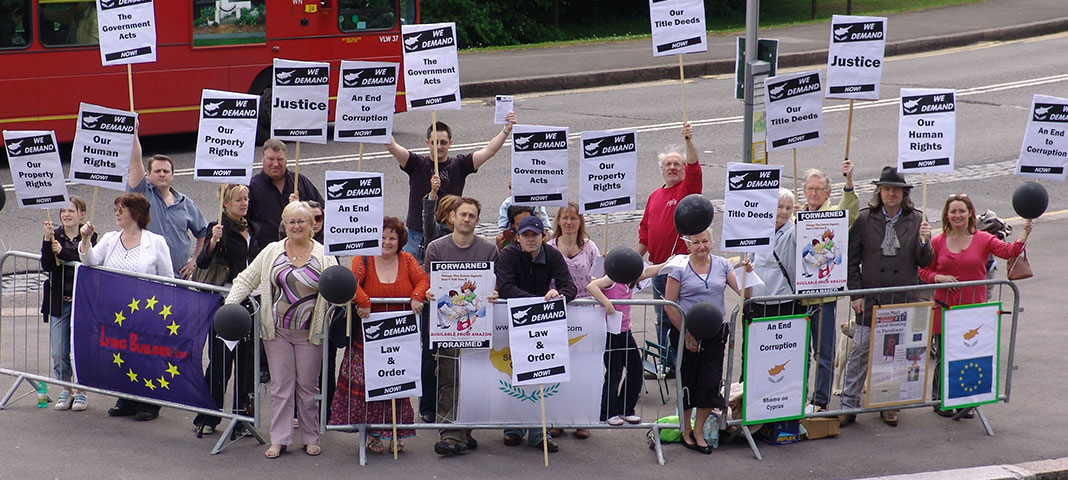LAWYERS ON both sides of the Conor O’Dwyer vs Karayannas Developers dispute are sharpening their pencils in anticipation of the next bout in this high-profile property dispute.
Last week’s court decision clearing Karayannas Developers of the charge of criminal fraud over a disputed villa in Frenaros is by no means the end of the line in the long-running saga.
O’Dwyer bought the property on land belonging to the developers in 2005; disagreements arose soon after when he noticed that the construction did not match the designs he was shown when making the purchase.
He also claims that the villa was later resold without his knowledge, causing him not only to lose the property but also e1/4100,000 in installments he had paid to the developer up to that point.
O’Dwyer lost the private criminal case he brought against the developers because the judge deemed that he did not establish, beyond reasonable doubt, intent to defraud on the part of the defendants.
The legal action initiated was based on section 303A of the penal code, which states: “Any person who, with intent to defraud, deals in immovable property belonging to another is guilty of a felony and is liable to imprisonment for seven years.”
Intent to defraud is defined as “having knowledge or, given the circumstances, ought to have knowledge, that he did not have the consent of the registered owner of the immovable property or of any other person legally empowered to provide such consent.”
The judge in the criminal case said the burden of proof was on O’Dwyer to demonstrate that the accused (the developers and the second buyer) intended to commit fraud.
O’Dwyer’s lawyer Yiannos Georgiades said they would be filing an appeal with the Supreme Court sometime in the next few days, provided the Attorney-general gives his consent.
In her verdict, the judge said that, at the time the complainant filed the sale contract with Land Registry, there was no evidence that the defendants (the developers and the second buyer) intended to cheat O’Dwyer.
Georgiades said this was a major point he would be contesting in his appeal with the Supreme Court: “Mr. O’Dwyer has never claimed that the developers intended to cheat him from the outset, or from the time he filed the sale contract. Rather, his position is that they tried to defraud him at a later stage, due to their disagreements over the villa.”
Therefore the judge’s reasoning on the question of intent to defraud should have referred to the time when the developers sold the property to the second buyer, Georgiades explained.
“It’s a mistake on the judge’s part,” said Georgiades.
“In my opinion, the judge also failed to follow a previous Supreme Court decision according to which a buyer of a property becomes the owner of the property in equity provided he files the contract of sale with the Land Registry.”
The developers claim that they sold the house a second time after notifying O’Dwyer of the termination of their contract.
In her verdict, the judge noted she was not convinced that once someone files a property with the Land Registry that means they “automatically and in perpetuity become the ‘owners’ of the residence.”
The judge noted that since the dispute — whether the contract was terminated or not — is pending before another (civil) court, she could not rule on who was the rightful owner of the property and that therefore this became a moot point as far as the case before her was concerned.
She further observed that the best course of action for the complainant (O’Dwyer) would have been to first resolve that dispute in civil court before embarking on a criminal case.
He elaborated: “If this ruling stands, we would be shooting ourselves in the foot. It’s like telling foreigners, you’re not safe when you buy property in Cyprus. And ironically enough, this is despite existing law which does afford protection.”
The next battleground is in civil court, where the developers are suing O’Dwyer for libel but are also seeking to prove that they did terminate the contract with him, and that thus they were within their rights to sell the same property to another buyer. The first hearings are scheduled for February.
Supreme Court legislation states that as soon as a contract is filed by a buyer with the Land Registry, the buyer is the beneficial owner of a property provided they fulfill all their contractual obligations.
The latter phrase is key to the case of the developers, who argue that their contract with O’Dwyer was terminated when, they say, he breached the contract by refusing to pay the remaining installments.
Georgiades counters his client was willing to continue installments but was refused by the company.
Efthimios Flourentzou, lawyer for Karayannas Developers, says that O’Dwyer had issued the developers a “verbal ultimatum: ‘either give me a large sum of money or else a more expensive villa’.” An allegation which O’Dwyer has flatly denied.
“He did not want the house, it seems,” Flourentzou said. “With his behaviour, Mr. O’Dwyer has severed all ties with my clients.”
He was referring to a website created by O’Dwyer chronicling the affair and casting aspersions on the developers.
But Georgiades has an entirely different take: “Even if a property buyer is said to have not fulfilled the terms of a contract, the contract cannot be terminated unilaterally by either party. You have to go to court, which will decide on the case. Until that time, the buyer remains the beneficial owner, and is entitled to specific performance.
“Imagine what would happen if developers were allowed with impunity to wriggle out of a contract because of complications with a buyer, and then re-sell the property to another. It’s not logical.”
Georgiades went on to muse why, in the first place, Karayannas Developers were going to civil court to validate that their contract with O’Dwyer has been terminated.
“If they indeed lawfully terminated the contract — which is what they’re saying — then why are they going to court to prove it?”
He said the developers did not give O’Dwyer two-weeks notice, as stipulated in the contract, to pay the installments or else they would terminate the contract.
“Instead, they gave him a choice: either keep up payments or give up the house. This was sent by a letter through their lawyers.”
By Elias Hazou Published on January 26, 2011
Copyright © Cyprus Mail









